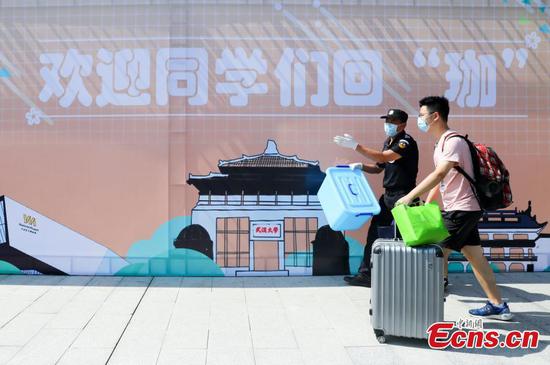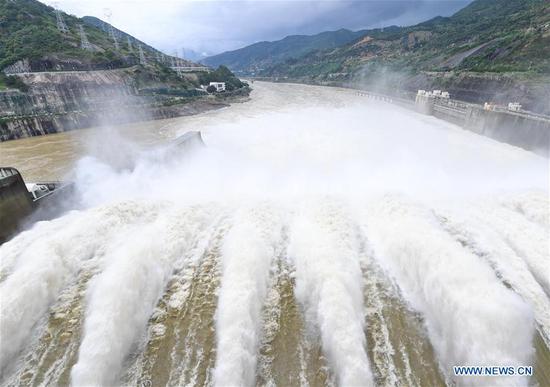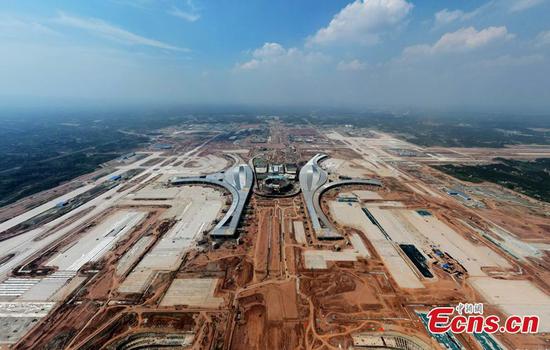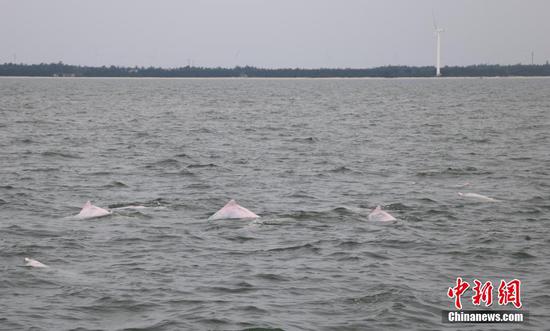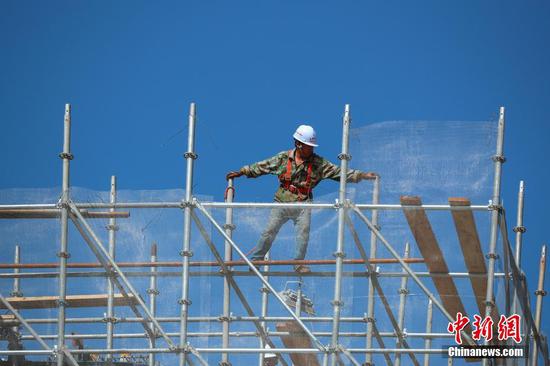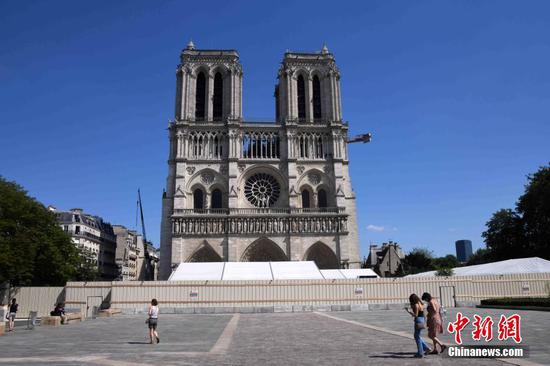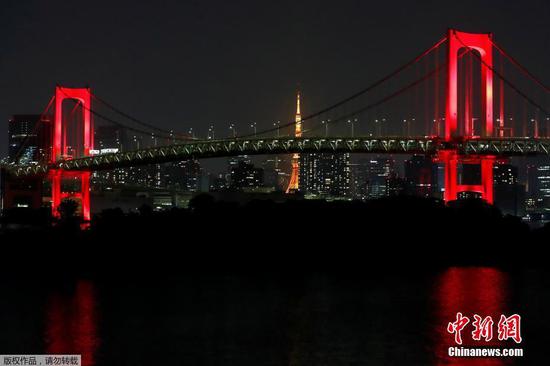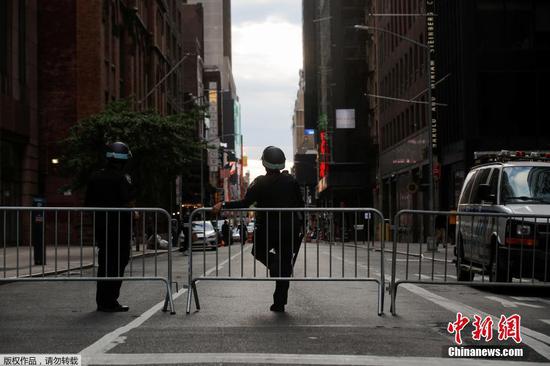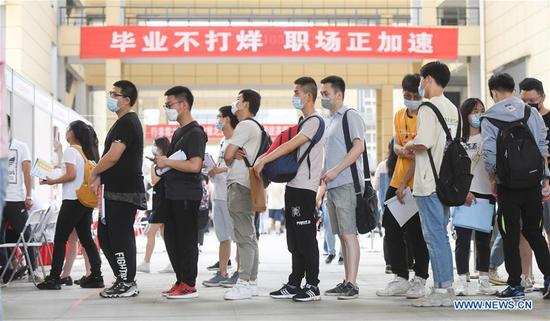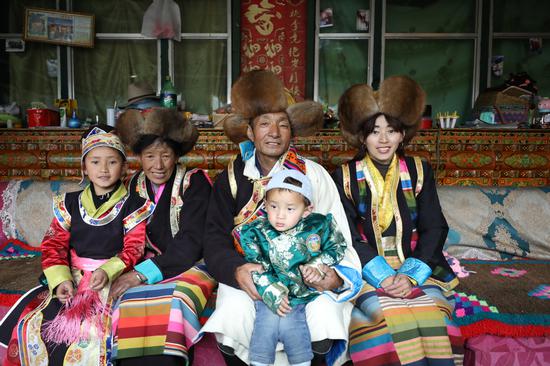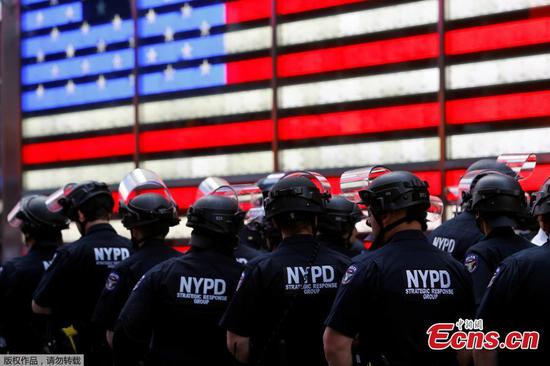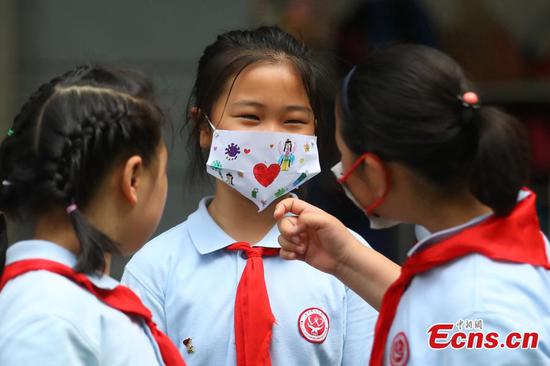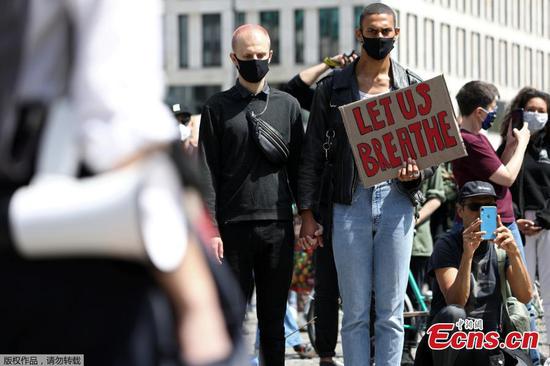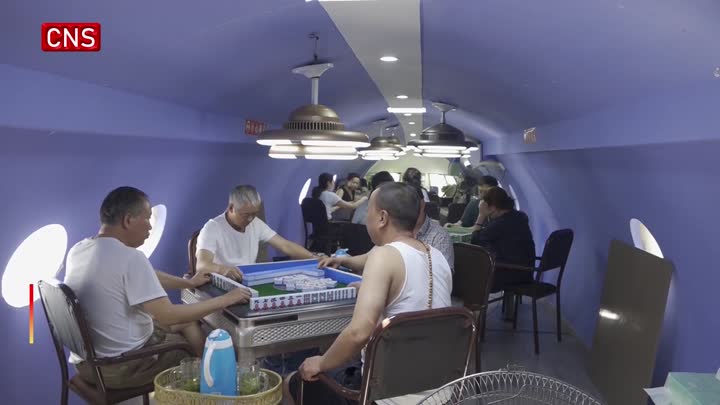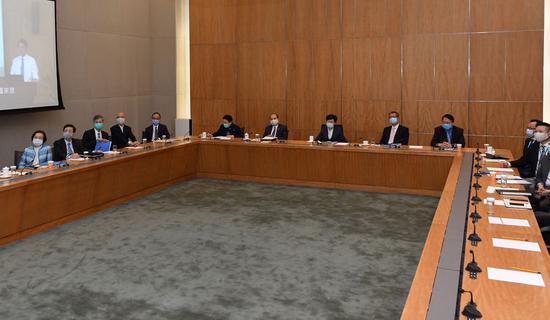
Hong Kong Special Administrative Region (HKSAR) Chief Executive Carrie Lam (C) and other officials attend a webinar to commemorate the 30th anniversary of the promulgation of the HKSAR Basic Law, Hong Kong, China, June 8, 2020. (Xinhua)
The national security legislation for the Hong Kong Special Administrative Region (HKSAR) by China's top legislature is a milestone in the implementation of the HKSAR Basic Law and will ensure the sustained success of "one country, two systems," speakers said at a webinar on Monday.
At the webinar, held by the HKSAR government on Monday afternoon to commemorate the 30th anniversary of the promulgation of the HKSAR Basic Law, the decision recently approved by the National People's Congress (NPC) on the national security legislation for Hong Kong was in the spotlight.
Describing the NPC decision as a milestone in the implementation of the HKSAR Basic Law, Zhang Xiaoming, deputy director of the Hong Kong and Macao Affairs Office of the State Council, said in his keynote speech that the decision aims at not only safeguarding national security and the sustained success of "one country, two systems," but also helping Hong Kong get out of the current predicament and get back on track.
The major problems Hong Kong is facing derived from the fact that the opposition and the external forces behind are attempting to turn Hong Kong into an independent or semi-independent political entity and a pawn to contain China's development, Zhang pointed out, adding that it will affect the full and accurate implementation of "one country, two systems" and the long-term prosperity and stability of Hong Kong.
The more the bottom line of national security is consolidated, the greater the space will be for Hong Kong to leverage its advantages under "one country, two systems," he stressed.
After the enactment of national security laws, Hong Kong's social stability will be restored, its business and investment environment will be improved, and the freedoms and human rights of the mass residents will be better protected, he added.
Deputies to the 13th NPC voted overwhelmingly on May 28 to approve the decision. According to the decision, the NPC entrusts its standing committee to make national security laws to be promulgated and enforced in Hong Kong.
Zhang emphasized that the NPC Standing Committee will complete the legislation in accordance with legally prescribed procedures and ensure the laws' implementation in the HKSAR, so as to "install an anti-virus software" for the implementation of "one country, two systems" in Hong Kong.
When addressing the webinar, HKSAR Chief Executive Carrie Lam said the national security legislation targets only an extremely small group of people who engage in criminal activities seriously endangering national security, and protects the vast majority of law-abiding residents.
The legislation will enable Hong Kong to restore safety and stability after the prolonged chaos and unrest last year and recover from the impacts of the COVID-19 outbreak, Lam said, stressing that local and overseas investors will have stronger confidence in Hong Kong.
She promised the HKSAR government's full cooperation on the national security legislation.
Hong Kong has gone through ups and downs, and the "one country, two systems" principle is still the best arrangement for Hong Kong, Lam said, adding that the enactment and enforcement of related national security laws will improve "one country, two systems" and guarantee the long-term prosperity and stability of Hong Kong.
Lam said the founding mission of "one country, two systems" is to preserve Hong Kong's characteristics and advantages as well as Hong Kong residents' way of life on the premise of safeguarding the unity and territorial integrity of the country and maintaining Hong Kong's prosperity and stability.
The founding mission has never changed, Lam stressed.
Zhang Yong, deputy director of the HKSAR Basic Law Committee under the NPC Standing Committee, pointed out that to safeguard national sovereignty, unity and territorial integrity and to maintain Hong Kong's long-term prosperity and stability are the two indispensable fundamental purposes of "one country, two systems," which have been encapsulated in the Basic Law.
The NPC's decision to entrust its standing committee to enact national security laws specifically for Hong Kong, instead of simply listing the existing relevant national laws in Annex III of the Basic Law and applying them in Hong Kong, fully reflects the central authorities' trust for Hong Kong and respect for "two systems," he said.
In the process of the national security legislation for Hong Kong, the NPC Standing Committee will comply with the Constitution and the Legislation Law of the People's Republic of China and take into account the differences between the legal systems in the mainland and Hong Kong, so as to ensure the relevant laws will effectively safeguard national security and protect the legitimate rights and interests of Hong Kong residents, he said.









